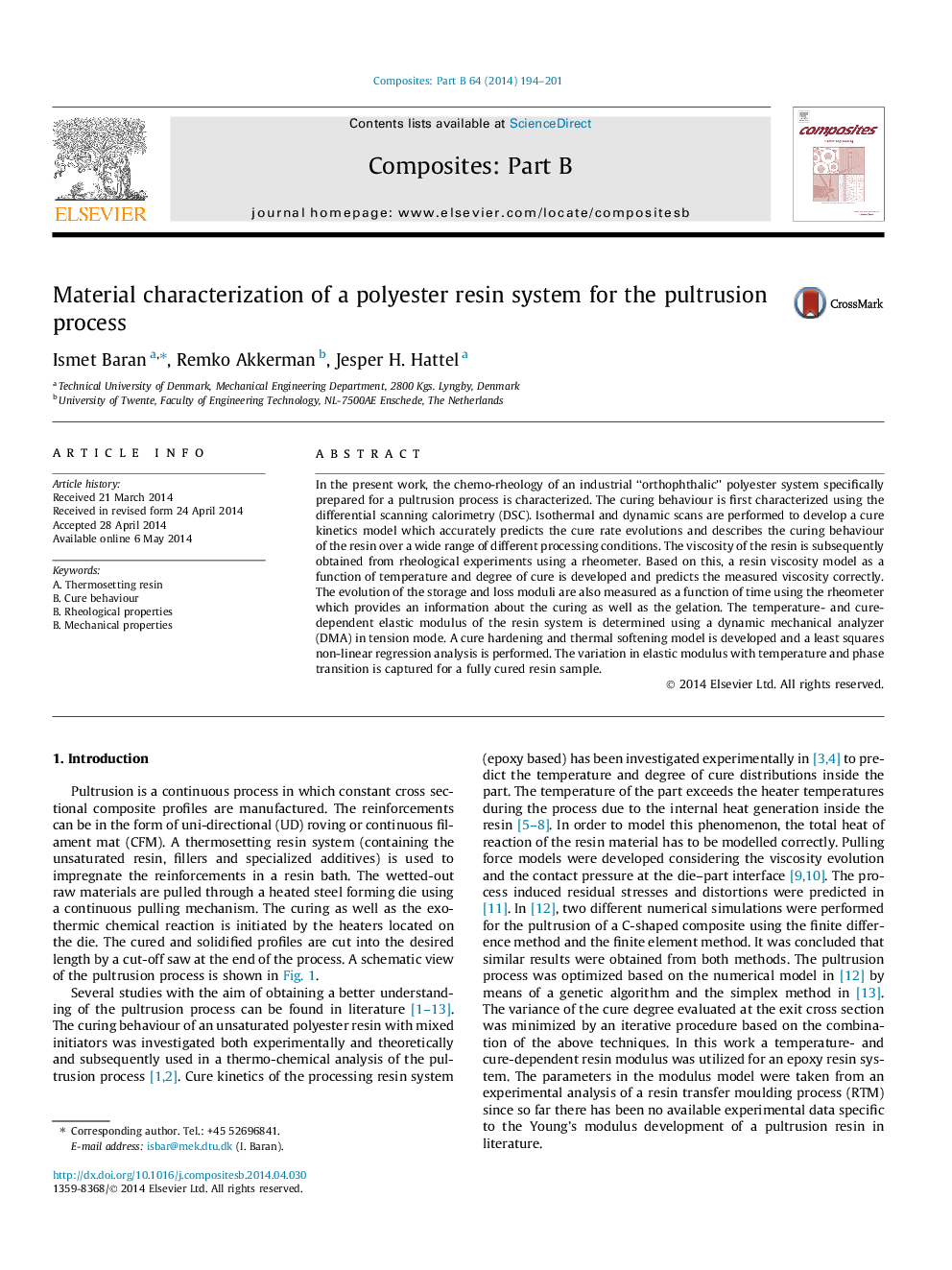| Article ID | Journal | Published Year | Pages | File Type |
|---|---|---|---|---|
| 7213657 | Composites Part B: Engineering | 2014 | 8 Pages |
Abstract
In the present work, the chemo-rheology of an industrial “orthophthalic” polyester system specifically prepared for a pultrusion process is characterized. The curing behaviour is first characterized using the differential scanning calorimetry (DSC). Isothermal and dynamic scans are performed to develop a cure kinetics model which accurately predicts the cure rate evolutions and describes the curing behaviour of the resin over a wide range of different processing conditions. The viscosity of the resin is subsequently obtained from rheological experiments using a rheometer. Based on this, a resin viscosity model as a function of temperature and degree of cure is developed and predicts the measured viscosity correctly. The evolution of the storage and loss moduli are also measured as a function of time using the rheometer which provides an information about the curing as well as the gelation. The temperature- and cure-dependent elastic modulus of the resin system is determined using a dynamic mechanical analyzer (DMA) in tension mode. A cure hardening and thermal softening model is developed and a least squares non-linear regression analysis is performed. The variation in elastic modulus with temperature and phase transition is captured for a fully cured resin sample.
Related Topics
Physical Sciences and Engineering
Engineering
Engineering (General)
Authors
Ismet Baran, Remko Akkerman, Jesper H. Hattel,
